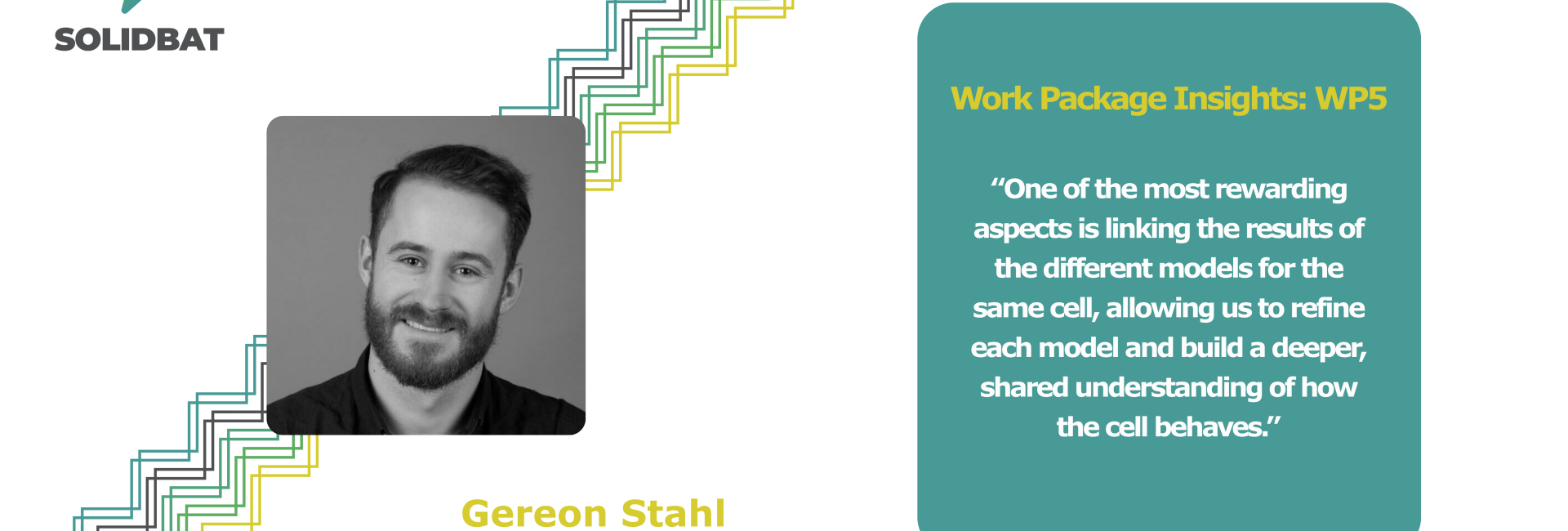
Our work package leader - Gereon Stahl
Within the SOLIDBAT project, Gereon Stahl from RWTH Aachen University leads Work Package 5, dedicated to modelling, analytics, and lifetime prediction. His team develops advanced simulation tools to better understand and optimise the behaviour of solid-state batteries — from lithium dendrite growth to temperature distribution — supporting the design of safer, more efficient, and longer-lasting energy storage systems.

Which are the challenges of WP5?
Working on WP5 means shaping the future of solid-state batteries through advanced modelling. Developing multiple models with different purposes challenges the work package leader to streamline the parameterisation routines to gather every required parameter at the time needed. Those models might need the same parameter but with additional information, thus, coordinating the experiments is key. Additionally, a challenge, but also an advantage, in developing multiple models for the same cell is to connect the results and optimize each model towards a common understanding of the cell.
However, modelling without validation is insufficient. Thus, timing the validation tests and optimizing the models will be challenging, but due to joined forces an interesting upcoming task.
Which achievements do you foresee?
In SOLIDBAT, we are confident that our team will develop advanced models capable of predicting the full behaviour and performance of the solid-state cells designed by our project partners. These models will provide insights into lithium dendrite growth and effective strategies to suppress them, as well as a detailed understanding of temperature distribution within the cell. Ultimately, our modelling work will support the optimisation of the cell design and cycling protocols, paving the way for improved solid-state battery development.
Which synergies do you expect to with partners?
In our work package we have a broad knowledge base, starting from the micro-structure level up to the cell level. This foundation enables an excellent exchange of different perspectives on models and the understanding of batteries. Due to our different backgrounds, like chemistry or electrical engineering, everyone in the team can provide valuable insights on different methods. In addition, we are located at different research or industry facilities, bringing various testing equipment at play. This is expected to be one of the game changers in parameterising the models being developed in our work package.
Give a personal perspective: what do you like/enjoy/expect from the experience of being a WPL?
One of the most rewarding aspects is linking the results of the different models for the same cell, allowing us to refine each model and build a deeper, shared understanding of how the cell behaves. What I particularly enjoy is working closely with many talented colleagues from different backgrounds. The exchange of ideas and perspectives makes the work both inspiring and fun.